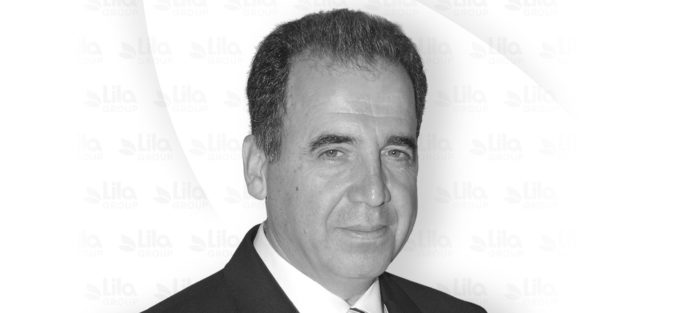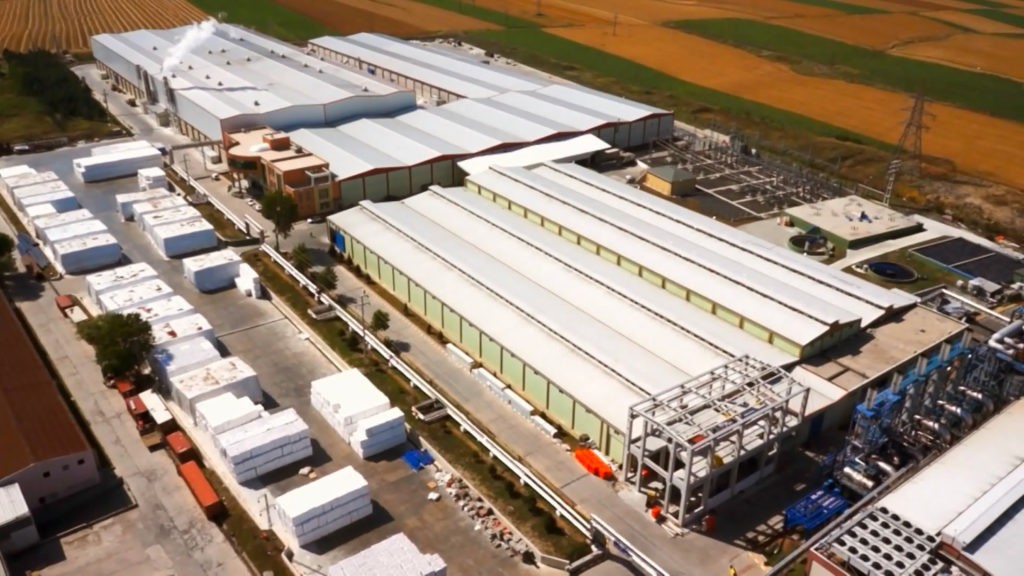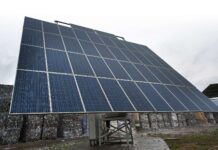
Will a new ‘Era of Hygiene’ emerge once Covid-19 is under control? Turkey’s Lila Group Chairman Orhan Öğücü believes it will, after consumers have grown to rely on and trust tissue products more during a health crisis which has reached into every home.
TWM first met Lila Group Chairman Orhan ÷ğ¸c¸ in 2012 at the company’s site in Turkey. At the time, ÷ğ¸c¸ said their aim was to be the number one in tissue production and trade in Turkey and within the region.
Eight years later, and this time over a conference call, he discusses the companyís performance and planning Ö turnover at US$200m at the end of 2019, growth at 50%, exports into 80 countries and more scheduled, energy consumption targeting a 30% reduction, and production capacity set to increase by 33% in 2021.
Consumersí hygienic understanding has changed, he says, and that will continue after the pandemic. This is a big opportunity for the tissue market. Report by TWM Senior Editor Helen Morris.

“We concluded 2019 with a turnover of over 200 million USD with an overall growth of over 50% thanks to the contributions of our new investment and increasing export figures. As for 2020, we aim to again demonstrate a growth of over 50% driven by our export strategy and new investments. Our share in the exports of our industry is 34%. In the world, we export to more than 80 countries in five continents.
My expectations for after the Covid-19 pandemic will be that, globally, we will see at least a 10-15% increase in tissue consumption. I am not just optimistic – that is what I really feel, and I see it. And the reasons are simple; our hygienic understanding has changed. Our behaviours have changed, we are washing our hands much more. We will be more careful, even after the pandemic. And this is a big opportunity for the tissue market.
Currently, we are thankful as the pandemic situation in Turkey is better than in parts of the world. Turkey has very closely followed the World Health Organisation’s rules. Our president has kept us at home for several weeks and this has reduced many people from getting sick.
The number of cases here is coming down. Also, because of the location of Turkey, we have very strict control for the tourists. Whoever now comes to Turkey for tourism is checked at the airport, and everyone is kept in touch with to see where they are staying, where they are eating. But at the same time we also face the very difficult issue of the refugee crisis. In south-east Turkey, the number of refugees isn’t decreasing, but the living conditions for them is very difficult. And if they catch the virus, it spreads to everyone because they are living in such close proximity. So we are seeing a lot of casualties in rural, low-income areas of Turkey, or from where the refugees are living.
Tourism – and the AfH market – has also been greatly impacted. We are seeing around 35% of the tourism capacity currently in Turkey. But even during our recent holiday period, almost all of the hotels were fully booked by Turkish people.
Before the pandemic, the total tissue and towel consumption was around 560,000tpy locally. And now I believe it has dropped to around 400-450,000tpy because of the AfH drop and also the drop in tourism. Will it go back? It varies from location to location. For low income regions they purchase small packs but more frequently. For high income, they try to keep some extra stock in case, so they purchase bigger packs. Normally 48 roll packs – which are common in the UK and also in America, but they weren’t so common here in Turkey – now we also produce 48 roll packs.
Four new machines will be operating by the end of 2023
We will continue to be innovative and invest. We have four new machines that will be started up between now and the end of 2023, and three of them will have started up by the end of 2021. The Turkish hygienic tissue paper market worth is about three billion Turkish Liras, and Lila Group currently takes the first three positions in Turkey. Although the company is one of the youngest companies in the domestic market, it is the first in the top three with its own brands. Nearly 90% of Lila Group’s overall revenue came from the tissue business in 2019.
The company has gained a strong place in the FMCG sector offering an extensive range of products such as toilet rolls, towels, napkin and tissue with the Sofia, Nua, Maylo and Berrak brands. Our aim is to position our brands as one of the main market players with cost effective and innovative products developed to focus on the consumer requirements and needs.
We concluded 2019 with a turnover of over 200 million USD with an overall growth of over 50% thanks to the contributions of our new investment and increasing export figures. As for 2020, we aim to again demonstrate a growth of over 50% driven by our export strategy and new investments. Our share in the exports of our industry is 34%. In the world, we export to more than 80 countries in five continents. Exporting more than it imports contributes to the closing of our country’s current account deficit.
We launched our new facility investment in March 2020. With the commissioning of our investment in this new facility with a total investment cost of 450 million Lira, we became the second biggest capacity integrated facility in Europe in the same campus. In Turkey, we have a total paper production capacity of 950,000tpy, and will reach 1,020,000tpy with our new plant investment. In addition, we have an export target of 100 million dollars and a total turnover of 300 million dollars. With our new facility, we have increased the existing paper production capacity by 50%, reaching a total capacity of 220,000 tonnes, as well as the capacity of branded products from 100,000 tonnes to 120,000 tonnes. This investment has also made a great contribution to meeting the increasing demand during Covid-19.
Turkey’s tissue paper needs as a third from Lila Group are in position to meet alone. Today we aim to add at least 25-30 new countries to the 80 countries where we reach with our products. With our new investments, we anticipate that our export figure will reach $180m per year. We closed the last year with a turnover over one billion Turkish Liras and over 35% growth. Today, we export 75% of our production and 25% meet our consumers in the domestic market.
With our new investment which is planned to become operational in the second half of 2021, we will increase the company’s total production capacity by 33%, making it the largest production centre not only in Turkey but also in Europe.
We made this investment because decreasing our energy consumption is a key issue for us. We are addressing this issue by adding new machines and upgrading our existing machines, which will reduce our energy consumption by increasing our overall energy efficiency. In terms of upgrades, all our existing machines are being prepared to reach the same level of efficiency as the latest machines, which require an increase in efficiency of around 15%. The latest machines and the upgraded machines will see energy consumption that is at least 30% lower than previous year. We are also investing in technology that allows us to collect waste energy and reuse it in other forms. This will offer us a large advantage over the competition.
The saved energy will be equal to the amount of energy consumed by 4,000 households per year.
Emphasising the technological improvements made in both existing and new investment plant will provide energy conservation. All our production lines are equipped with the latest technology and we’ve also updated our existing machines. With the help of these updates, the energy consumed by 4,000 households will be regained continuously, which means USD 1,500,000 worth of energy saving.
Water turbine within the machine mean major energy savings
Compared to the other examples globally, this new plant is a pioneer in several ways. Equipment called ‘ReTurne’ will be used in paper production machine for the first time in Turkey and it will use the energy of water used in the production via the turbine placed in the machine, resulting in saving electricity consumed per tonne. ‘Visco Nip’ will provide the energy saving in the drying process of the product. Additionally, with the help of a ‘Redry’ system, steam consumption has also been reduced. Moreover, no heat is released into the atmosphere as a waste energy, so it is eco-friendly. There will be also systems to retain rainwater. Owing to all these nature-friendly systems, there will be 15% saving in source utilisation and, currently, it has the most environmentally-friendly machines with the lowest carbon footprint.
Our future goal is to increase our capacity both in jumbo roll and in converted products. In 2020, our target is to reach over USD300 million in revenue. About 75% of our revenue is coming from exports today and we aim to reach 80-85% next year. Around 95% of our revenue will come from the tissue business.
We see that many companies are avoiding long term strategies. Other than the pandemic, we are seeing that technology, trends, economic and political balances can now change much faster. Our medium-term goal is to be among Turkey’s top 100 industrial enterprises in 2023. In addition, to be one of the top five Turkish companies which operates in the FMCG (non-food) sector.
We always believe in the power of our country and its potential. When you look at the first years of our republic, we left the war as a country that lost everything. We lost a large population, especially our young population, in the war. However, with the determination of Mustafa Kemal Atatürk’s superior leadership qualities, we have reached the level that will make our name heard in the world in a very short time. We experience the inevitable consequences of our geographical location from time to time, but we are getting stronger each time. Turkey always retains its attraction for foreign investors due to its geographical location and dynamic population. We continue to invest in our country in line with this belief.
During the pandemic, some business activities were closed, such as cafes, hairdressers, shopping centres, just as we saw all over the world. That situation affected workers and the economy as well. The government prepared an action list for the economy and these actions helped people to take a breath.
Lila Group has closely and continuously monitored the situation and has introduced comprehensive and rigorous hygiene policies in every one of our operations to ensure the health and safety of our employees. The company is committed to ensuring the continuity of our operations and supporting our customers, partners and the communities. Our hygienic products play a vital role in the lives of consumers all over the world.
Donated 2.5m Lira of supplies to public hospitals
Within the framework of our code of corporate and social responsibility, Lila Group has acted due to the increasing effects of the Covid-19 in Turkey. We have donated 100,000 rolls (five million metres in length, 2.5 million units in total) of medical examination couch roll worth up to 2.5 million Lira to be used in public hospitals and ambulances under governance of the Ministry of Health of Republic of Turkey.
None of our investment decisions were postponed; we are prepared for even the worst scenario in terms of economy and health issues. This is the worst crisis since the First World War.
The importance of hygiene has really increased due to the pandemic. We have encountered four times the demand for our products. A 15% increase in consumption of household toilet roll in the first half of the year appeared suddenly. However, this situation is temporary. Covid-19 has increased the use for providing hygiene and stocking behaviour has also improved. According to Nielsen, the personal care category has increased during the pandemic. Shopping habits changed, multi-channel purchasing has increased, e-commerce usage experienced the biggest growth.
Now with the understanding of “what I can find” and “whatever I can stock”, the understanding of “I should not consume outside” has emerged. Consumers are focused on products that they can stock and store for a long time (such as pasta, canned fish, frozen food, etc.) In addition, hygiene products took their place in the shopping lists due to the pandemic effect. It is at a record level compared to previous periods. With the effect of staying at home, sales of fruit teas, coffee and teas increased approximately 10 times. Online channels faced three times the usual purchase figures.
In the first two months of the pandemic, we received a lot of ‘non-conventional’ enquiries from countries such as Switzerland, Germany, Belgium, France, Sweden. It was also the first time we could export our products into countries such as these, countries that usually have no need to purchase converting products abroad at such high quantities.
Fortunately, our third machine came on stream at the right time when it started up in the second half of February. And in the beginning of March it was giving good production. It helped us a lot to fulfil the increase in demand.
The increase in tissue paper products has also affected the shifting consumption of consumer products instead of AfH products. This was not only toilet roll, but also the consumption of towels and napkins. With the effect of Covid-19, the use of pocket wipes and facial tissue for less surface contact has also increased.
We predict the use of bathroom and kitchen towels will now increase
New routines have entered into our lives; we wash our hands more often and use sterilisation materials. We saw a five times increase in tissue papers online shopping compared to last year.
We also faced an increase in the demand for pocket and facial tissue towels, especially for (hand hygiene) use. Hand towels – which are made of cloth in our homes – are not hygienic if they are used by more than one person. Therefore, we predict that the use of towels (including bathroom and kitchen) will increase, especially if they are individually used. Instead of air dryers (considering the problem of contamination by airborne droplets of Covid-19), towels and z-type folding will increase in shopping centres. Since towels are single use, they provide great convenience in terms of hygiene.
While the pandemic has been for many a painful experience, we have learned the importance of hygiene with the use of tissue paper. We have been able to meet the hygiene needs not only in our country, but also in other countries that needed it.
As the AfH market has been heavily hit with the outbreak of the pandemic, we believe that with the support of government, people, restaurants, schools and tourism, this sector will open again and AfH consumption will increase automatically.
We are also seeing a big shift towards private label products. This is mostly due to the economical hesitation of consumers as they prefer private label products more instead of branded products.
I’m not expecting any pulp price hikes; the pulp producers’ inventory has increased by 11 days as an average of 46 days year-on-year. Therefore, we don’t expect any pulp price hike. As AfH, printing and writing industries are still low, pulp consumption has been reduced.
Today the pulp market is very volatile, and we are hoping that the AfH consumption will come back again, along with vaccines for the virus.
With the development of tissue paper usage habits every year, our sector continues to grow. However, the supply of tissue paper products in Turkey (1.4 tonnes per year with new investments) remains well above demand. In Turkey, consumer products and AfH products usage was 560 tonnes before the pandemic, which means double of the current supply.
Despite the current consumption and growth, we believe that excess supply is a problem for our sector and, as the reflection of this increases, the price competition will be stronger. We observe that it is getting harder to achieve a sustainable margin day-by-day due to the increasing costs of reaching consumer, logistics and retailing (productivity per square metre).
We expect to exceed three billion lira in the 2020 total tissue paper market. It is likely that it will close with a 20% growth in tonnage and again with a consistent increase due to the revival of tourism in home consumption.
In this context, we expect that the most important factor in volume growth in 2020 will be the innovative products that will be introduced to the market and we do not expect a shrinkage as it is considered as the basic consumption material.
Since we are foreign-dependent in
terms of raw materials, energy prices, especially pulp, all inputs affected by petroleum, packaging costs, freight and the increase in inflation are naturally critical for our industry.
On the other hand, if there is a big second wave of the pandemic, production processes may start to fail and this will be a challenge not just for the Lila Group but for the whole world. As a hygienic tissue paper products producer, our responsibility becomes even greater during pandemic.
































